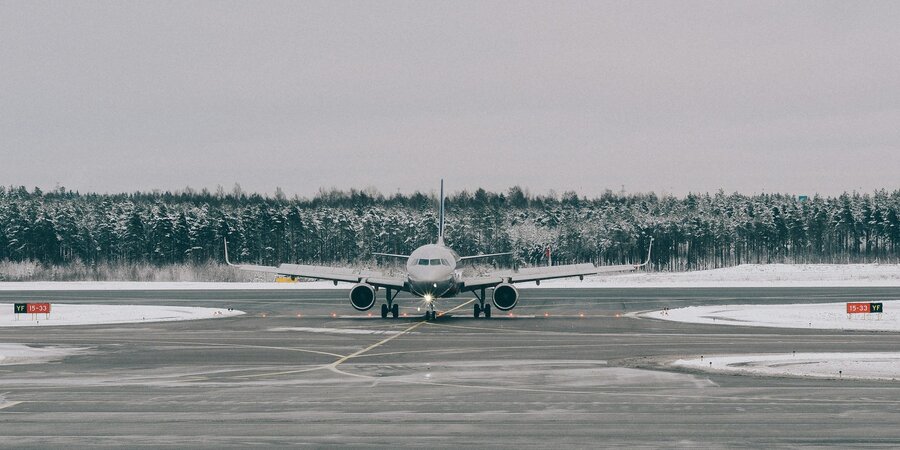Aviation Law
September 24th, 2024
According to the German Federal Court of Justice (BGH) airlines can no longer invoke extraordinary circumstances in the event of a delay following de-icing (case no.: X ZR 146/23). If an aircraft has to be de-iced before take-off in winter time, this is not automatically an extraordinary circumstance within the meaning of Reg. (EC) 261/2004.
Passengers are therefore entitled to compensation in the event of a significant delay of more than three hours. This applies in any case to regions where winter temperatures are to be expected.
The Case
The case concerned a legal dispute between the Dutch airline KLM and a German claim management company (CMC) to which a passenger had assigned her claims. Pax wanted to fly from Minneapolis in the USA via Amsterdam to Düsseldorf in December 2021.The aircraft had to be de-iced in Minneapolis and started with a delay. Pax missed the connecting flight in Amsterdam and arrived in Düsseldorf with a delay of just under four hours. The CMC initially demanded compensation from KLM out of court, but the airline referred to extraordinary circumstances and denied the compensation claim. The CMC then went to court and finally demanded 50 % of the full compensation (EUR 600) as the delay was under 4 hours. The airlines invoked this defense as Art. 5 subs. 2 lit c) allows for such reduction from the full compensation to 50 %. The claim was successful before the Düsseldorf District Court, but was dismissed on appeal before the Regional Court. The BGH reviewed the ruling and has now decided that the airline has to pay the EUR 300.
The legal reasoning
The BGH explained that de-icing an aircraft is generally part of an airline’s normal activity in winter temperatures. It serves to ensure that the aircraft is in a technically flawless and safe operating condition. Aircrafts taking off from Minneapolis in December do not always have to be de-iced. The decision depends on the weather and the pilot’s assessment. Typically, it is to be expected that de-icing will be necessary. Under the definition of the ECJ of an extraordinary circumstance this is an event that could not be influenced by the carrier – such as the winter weather conditions -, but that was in addition not inherent in the normal operation of an airline. The BGH interprets the second part of the definition in the sense that in winter time airlines have to acknowledge that cold temperatures might arise and therefore the need to de-ice an aircraft. This event is a typical situation in winter time.
The conclusion
General de-icing situations will not be considered as extraordinary circumstances by German courts any longer, unless it can be proven that it was not due to the usual winter routine but due to very special weather conditions. Even if the aircrafts have to stand in line at the airport before departure in order to be de-iced, there have to be special circumstances in order to be considered extraordinary in the sense of Art. 5 subs. 3 Reg. (EC) 26/2004. Please note, if the airport is running out of de-icing fluids this will also not qualify as extraordinary. Even though the ECJ had decided before that any disruption in the infrastructure of an airport – such as a defect fuelling system that is affecting all airlines (Case no: C 308/21) – which can exempt airlines from liability to pay compensation, the BGH did not apply this approach in situations that are not – in the courts view – unusual. In so far the court regarded weather conditions that require de-icing as inherent in winter time and therefore put the risk to operate without disruptions on the air carrier and not on the passenger. The court did not distinguish between the airline or the airport or a third party with respect to the responsibility to organize the de-icing process. If the airline is using a third entity it cannot be exempted from its obligation to organize a safe flight for the passenger.
The court does not say how an airline can prepare for such circumstances in order to prevent a delay and finally a compensation claim. This is especially very unsatisfactory for airlines that carrier pax with connecting flights: while the initial flight exposed to a de-icing situation might operate with a delay under three hours, the connecting flight will most likely be missed. Under these circumstances air carriers are not only obliged to pay out compensation but they also have to arrange for an alternative transport of pax to the final destination. Therefore offering flights in winter time can become a potentially risky business for airlines when it comes to passenger rights under Reg. (EC) 261/2004. This might be especially an issue for airlines operating in Nordic countries but also for airlines that are linked to connecting flights to and from regions that experience winter weather.
Going forward: in order to defend future de-icing cases successfully, a special winter situation such as winter storms or sever snowfall is necessary and of course this would require detailed documentation and explanations to the court as to why the situation was out of the ordinary.
Source
Federal Court of Justice, 27.08.2024, file: X ZR 146/23



